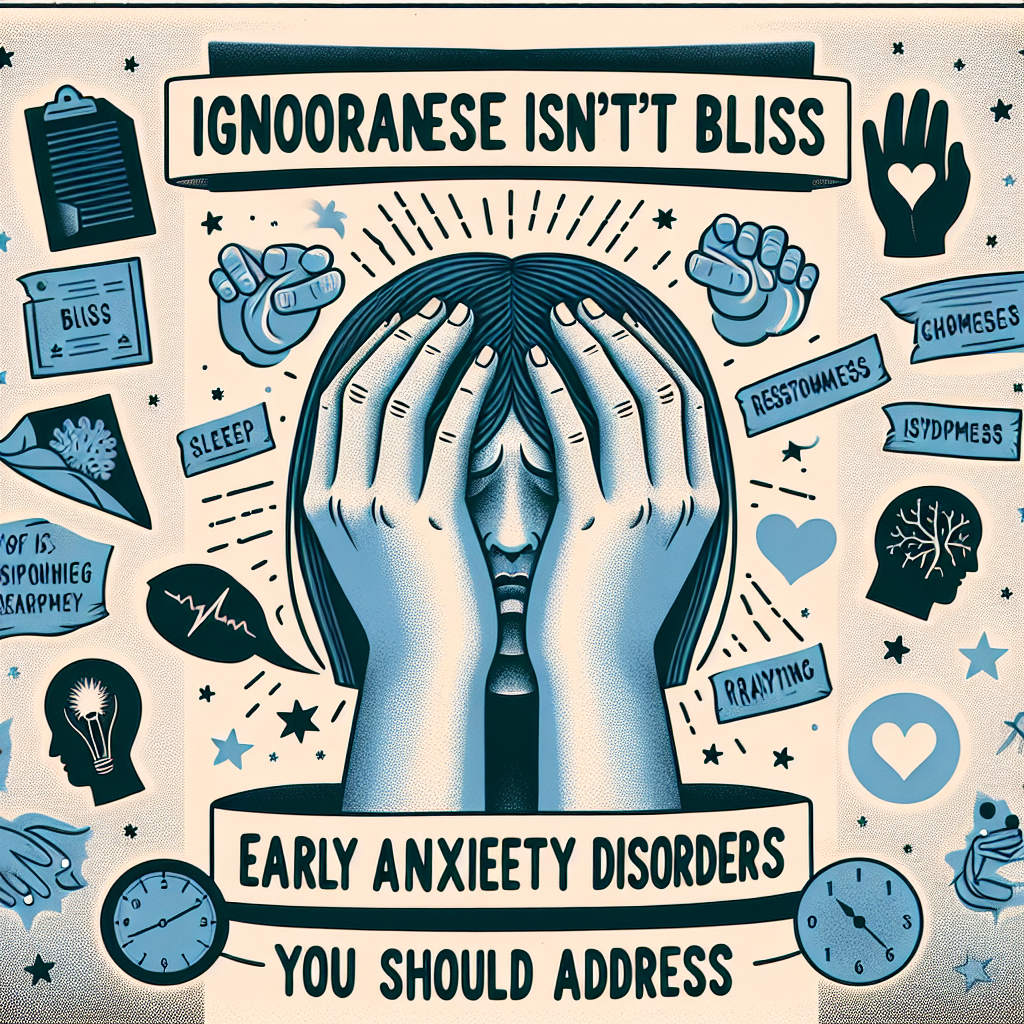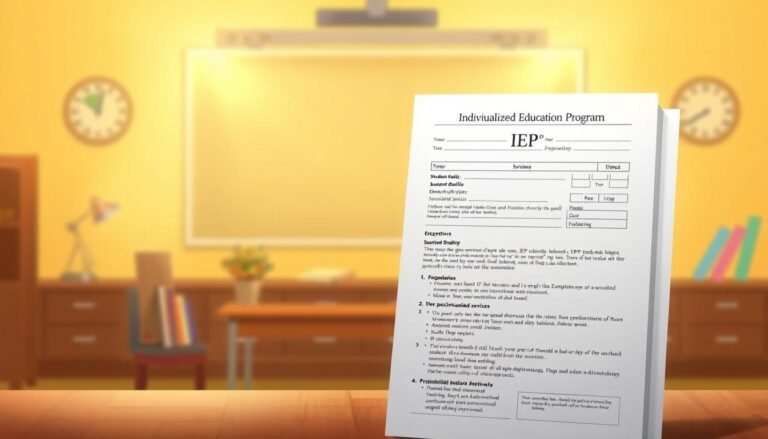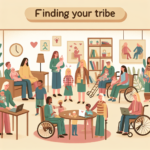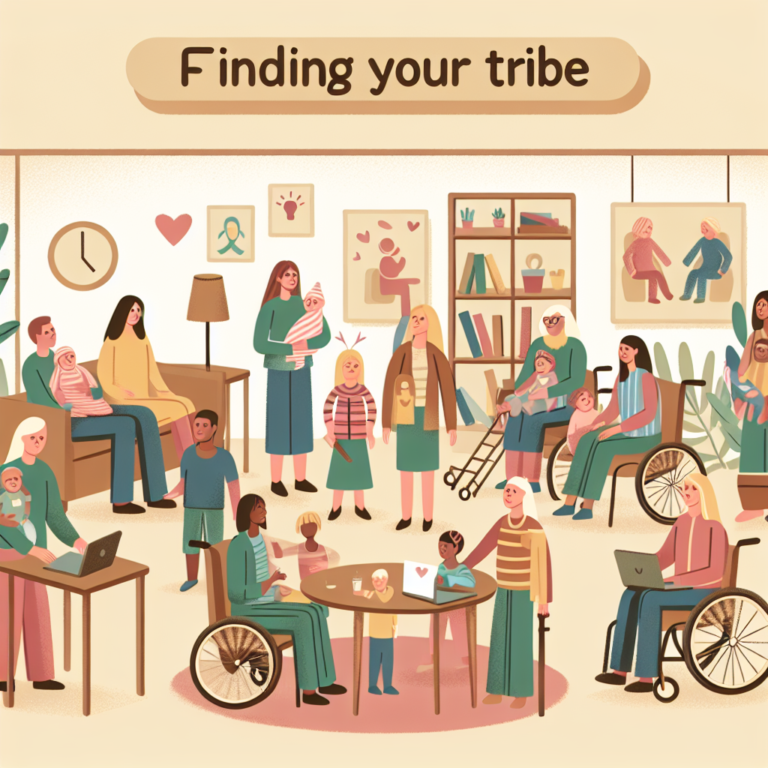
Ignorance Isn’t Bliss: Early Symptoms of Anxiety Disorders You Should Address for a Healthy Mind
Introduction
Have you ever felt a constant knot in your stomach, a racing heartbeat before a presentation, or a wave of dread that seems to wash over you for no apparent reason? If so, you’re not alone. Anxiety disorders are among the most common mental health conditions in the world, affecting millions of people each day. However, many individuals continue living with these feelings, thinking that they’ll simply fade away with time. But the truth is—Ignorance Isn’t Bliss: Early Symptoms of Anxiety Disorders You Should Address can provide invaluable insights into not only recognizing these symptoms but effectively managing them before they escalate into larger, more debilitating issues.
Understanding anxiety disorders starts with recognizing their early symptoms. This article aims to illuminate these signs, emphasize their importance, and empower you to address them proactively. So, whether you’re experiencing mild discomfort or someone close to you exhibits noticeable signs of anxiety, it’s crucial to tap into the knowledge about these early symptoms. This informed attitude can be not just empowering; it can also significantly improve the overall quality of life.
Understanding Anxiety Disorders
What Are Anxiety Disorders?
Before we dive deeper into the symptoms, it’s essential to grasp what anxiety disorders are. Anxiety disorders encompass a range of conditions, including Generalized Anxiety Disorder (GAD), Social Anxiety Disorder, Panic Disorder, and more. Each of these disorders manifests uniquely but shares common early symptoms that can seriously impact daily life.
Why Addressing Symptoms Early Matters
The phrase "Ignorance Isn’t Bliss" resonates deeply here. Ignoring the early signs of anxiety can lead to increased severity of symptoms, possibly culminating in organizational, social, and personal dysfunction. By addressing these signs early, not only can individuals manage their anxiety better, but they can also improve their overall mental and physical health.
Recognizing Early Symptoms of Anxiety Disorders
1. Persistent Worry
One of the hallmark symptoms of anxiety disorders is persistent worry. Do you find yourself worrying excessively about daily events even when there is no reason to? This chronic state of concern, often about health, work, relationships, or finances, can be an early indicator of an anxiety disorder.
Case Study: Sarah’s Story
Sarah, a 32-year-old marketing executive, found herself obsessively worrying about work deadlines. Even after successfully completing her tasks, she would lose sleep, fretting about future projects. After speaking with a therapist, Sarah realized her worries were irrational and rooted in a high-achieving mindset that spiraled into anxiety. Addressing this early symptom allowed her to implement strategies to manage her thoughts effectively.
2. Physical Symptoms
As anxiety begins to manifest, physical symptoms often accompany emotional ones. Examples include muscle tension, headaches, stomach issues, or a racing heart. Many people dismiss these sensations as stress-related, but they can indicate an anxiety disorder if they persist over time.
Analysis
Understanding this connection between physical and mental health can be crucial. Addressing physical symptoms can be a pathway to recognizing the underlying anxiety disorder, allowing for a more comprehensive treatment approach.
| Physical Symptoms | Description |
|---|---|
| Muscle Tension | Tightness in various muscle groups, often unnoticed until noticed |
| Headaches | Regular or tension headaches without obvious triggers |
| Gastrointestinal Issues | Chronic stomach disorders like IBS tied to anxiety levels |
3. Difficulty Concentrating
Individuals with anxiety often struggle with focus and concentration. If you frequently find your mind racing or feel "on edge," it could signify an underlying anxiety disorder. Lack of focus can impact both personal and professional life significantly.
Case Study: Tom’s Experience
Tom, a college student, realized his declining academic performance stemmed from his inability to concentrate due to persistent anxiety. Identifying his problem was the first step to seeking help, leading to medication and coping strategies that improved his academic performance and overall well-being.
4. Avoidance Behavior
Do you find yourself avoiding social situations or opportunities because of a nagging sense of dread? This avoidance is a common symptom of anxiety disorders. While it might seem harmless in the short term, over time, it can severely limit personal growth and social interaction.
The Snowball Effect
The more individuals avoid situations, the greater the anxiety becomes, creating a vicious cycle that feeds on itself. Ignoring the early symptoms can lead to increased isolation, depression, and more grave issues in overall well-being.
5. Irritability
In increased states of anxiety, individuals often display increased irritability. If you or someone around you becomes easily frustrated or annoyed, this too can be linked to anxiety symptoms rather than typical mood fluctuations.
Case Study: Jenna’s Realization
Jenna, a stay-at-home mom, noticed she was irritable with her kids over minor issues. After attending a local support group, she learned that her feelings stemmed from underlying anxiety about her health and future. Addressing these feelings openly resulted in calmer communication with her children and greater peace in her home.
The Importance of Addressing Early Symptoms
Proactive vs. Reactive Approach to Mental Health
Taking a proactive approach to mental health can be transformative. Individuals who actively address their symptoms can prevent anxiety from becoming more overwhelming. This process often involves therapy, regular physical activity, engaging in hobbies, and open communication with loved ones.
Community and Support Systems
Building a strong community and engaging with support systems can often help alleviate some anxious feelings. Sharing experiences can help destigmatize anxiety and create a sense of belonging.
| Action Steps | Description |
|---|---|
| Seeking Therapy | Professional help can provide coping strategies tailored to individual needs |
| Engaging in Community | Connecting with others who share similar experiences can provide understanding and comfort |
| Practicing Mindfulness | Techniques such as meditation and yoga can help reduce anxiety levels over time |
Conclusion: Ignorance Isn’t Bliss—Take Action!
In conclusion, Ignorance Isn’t Bliss: Early Symptoms of Anxiety Disorders You Should Address underscores the necessity of being aware of the early signs of anxiety. Ignoring these symptoms can lead not only to a heightened sense of anxiety but potentially to more severe mental health issues. Recognizing and addressing symptoms early can lead to a more fulfilling life, filled with opportunities for growth, connection, and happiness.
If you or someone you know is exhibiting these symptoms, remember that help is available, and taking the first step towards addressing anxiety can lead to a brighter, more peaceful future.
FAQs
What are the most common early symptoms of anxiety disorders?
- Persistent worry, physical symptoms (like muscle tension), difficulty concentrating, avoidance behaviors, and irritability are among the most common early symptoms.
When should I seek professional help for anxiety?
- If your anxiety symptoms persist over time, worsen, or significantly impair your daily functioning, you should consider seeking professional help.
Can lifestyle changes help manage anxiety symptoms?
- Yes! Engaging in regular physical activity, practicing mindfulness, and maintaining a balanced lifestyle can significantly help in managing anxiety symptoms.
How do I know if my feelings are just stress or an anxiety disorder?
- If feelings of stress become excessive, prolonged, and affect your daily activities or relationships, it might indicate an anxiety disorder, and it’s advisable to consult a professional.
- Are there support groups available for individuals with anxiety disorders?
- Yes, numerous local and online support groups offer a platform for sharing experiences and connecting with others facing similar challenges.
By acknowledging early symptoms of anxiety and taking proactive steps, individuals can reclaim agency over their mental health, manifesting a life that radiates positivity and fulfillment. Let’s prioritize mental health together!

















